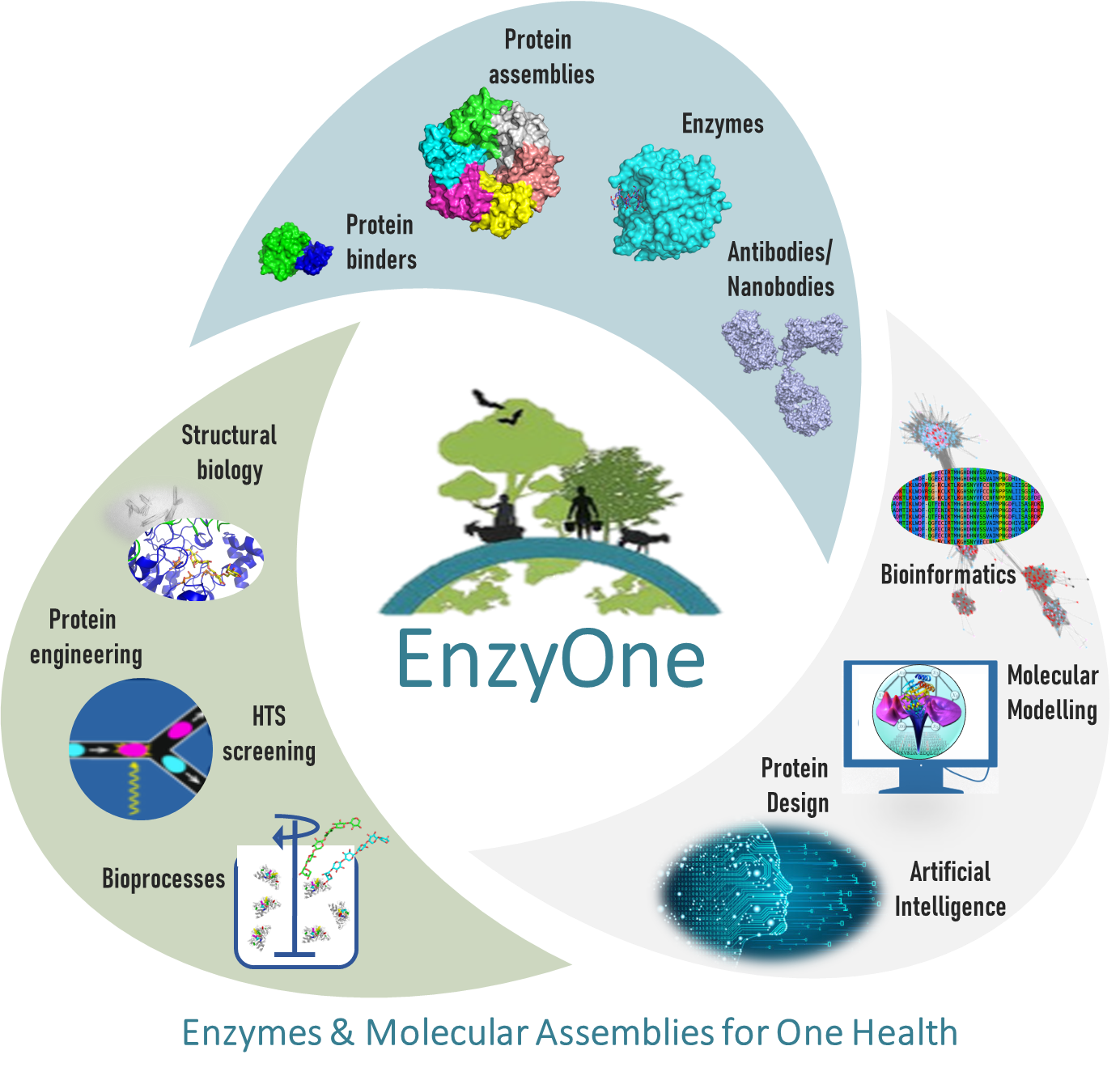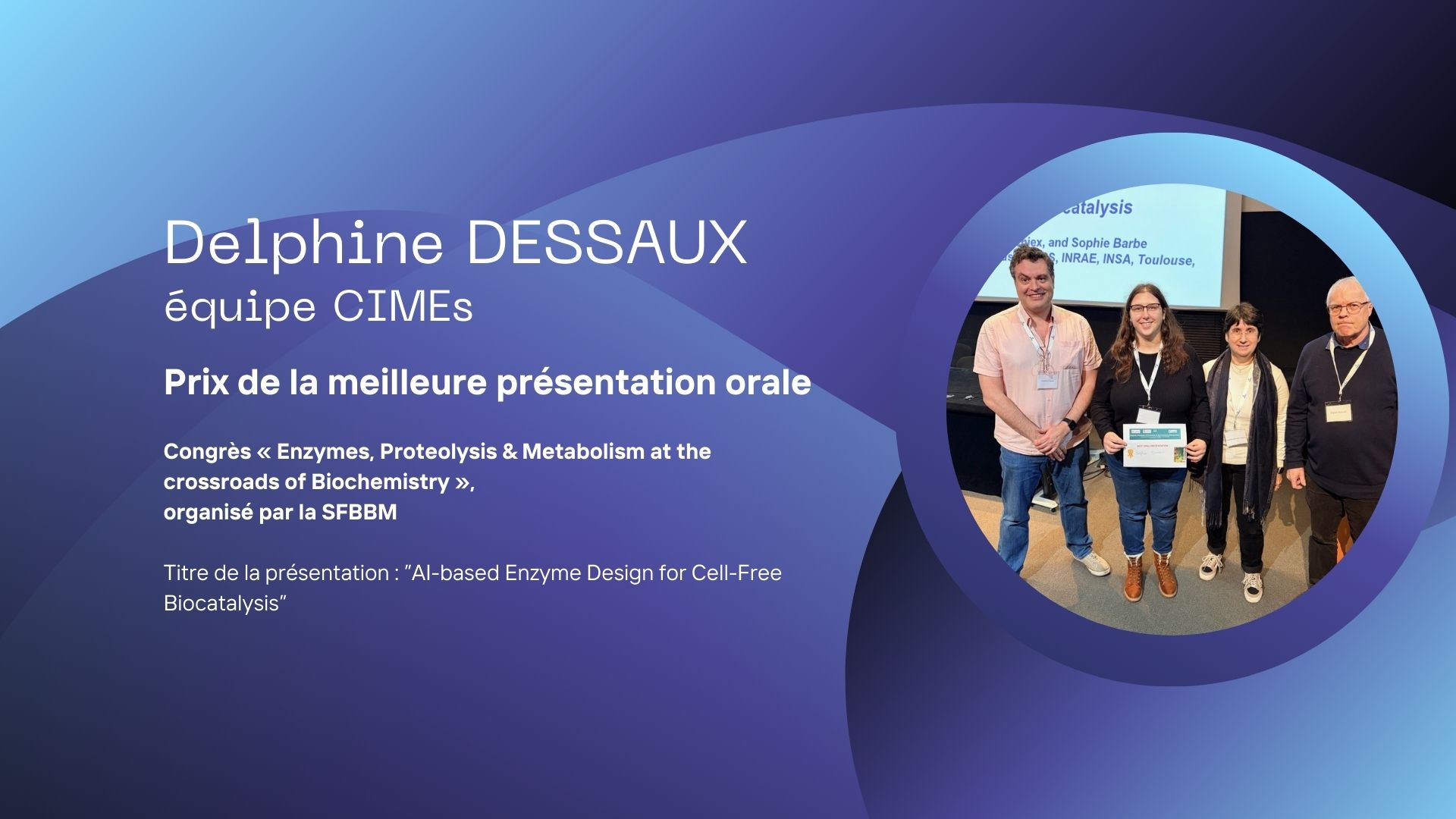EnzyOne theme
Enzymes and Molecular Assemblies for One Health
A few words
Enzymes and Molecular Assemblies for One Health
The aim of EnzyOne is to study and develop biotechnological solutions dedicated to human health, food/feed and well-being while preserving the environment, according to the "OneHealth" approach that recognizes the interconnection and interdependence of these different topics. Our research involves diverse models of study with a wide range of enzymatic functions that are primarily involved in the synthesis or the modification of molecules. A significant research axis deals with the customized synthesis of oligosaccharides, polysaccharides and glycoconjugates using bacterial transglycosylases and glycoside-phosphorylases. These enzymes come from natural diversity and/or are tailor-made engineered. The second major area of research is the development and implementation of methods and tools that combine molecular modelling and artificial intelligence to decipher structure-dynamics-function relationships and to protein design (redesign or de novo design). These approaches enable new avenues for the tailor-made engineering of enzymes, nano-/antibodies, protein binders, as well as multi-protein or protein-polysaccharide assemblies.

Responsables du thème : Claire Moulis & Sophie Barbe
Ongoing projects
Nanobiocat
2025-2029
EXPLORA’E TRANSFORMATION
AI for the de novo design of catalytic nanobinders
Développement d’approches basées sur l’IA générative pour le design de novo Development of generative AI approaches for the de novo design of novel proteins capable of specifically recognizing and modifying targets, in order to provide fast and effective responses against pathogens and to foster innovation in biotechnology.
Calipso
2024-2028
ADEME
Novel routes for continuous production of aromatic esters using optimized lipases
In collaboration with Naturamole, demonstration of the technical, economic and environmental feasibility of an enzyme production chain and its use to produce eight natural esters of interest in a bio-based manner, mainly for the food, perfume and cosmetics markets.
MALIGNE
2025-2030
PEPR B-BEST
Water-soluble enzymatic lignin for high value and sustainable applications
Exploration of new enzymatic strategies to solubilize lignin and unlock its potential in fields such as low-cost carbon fibers, UV filters, and bio-based surfactants. AI, molecular modeling, and high-throughput microfluidic screening are leveraged to optimize enzymes and foster the emergence of these new applications.
SMALA
2022-2026
ANR CE07 PRC
From small to macrolactams: an enzymatic approach
Discovery and engineering (rational and random strategies) of enzymes for the in vitro synthesis of lactams of various sizes (essential pharmaceutical active ingredients and chemical platforms for diverse types of polymers).
ANDES
2023-2026
ANR CE45
AI-based methods for nanobody design
Development and validation of methods based on AI algorithms for the computational design of nanobodies with applications in therapeutics and diagnosis.
COOOL
2025-2029
ANR CE07
AI and high-throughput microfluidic screening for enzyme engineering
Development and implementation of approaches combining machine-learning-based enzyme design with high-throughput electrochemical microfluidic screening, to engineer multi-copper oxidases optimized for biotechnological applications.
EPPIC
2024-2028
ANR
Eco-Innovation for Polymer Production from sugar by-products or CO2
Investigation of new production routes, less energy-consuming, not generating CO2 and less demanding in fresh water for the manufacturing of biopolymers. Enzymatic routes with multiples natural or evolved enzymes, cell-based processes involving engineered microorganisms and hybrid processes combining cell-free and cell-based systems will be developed, and the most promising ones will be evaluated using an eco-design and life cycle assessment approach to assess energy and environmental performances.
CEENS
2024-2025
3BCAR
Chemo-Enzymatic Epoxidation of Natural Substrates
Development of chemo-enzymatic routes for the production of epoxide derivatives, platform molecules with high application potential (plasticisers, polyols, epoxy resins, elastomers, etc.). In collaboration with LCPO, Bordeaux.
Nanodiag
2025-2026
ANITI/Région Occitanie, IA pour la SANTE
AI for the design of nanobodies optimized for clinical diagnostics.
AI-based multistate design approaches to develop stable and easily functionalizable nanobodies for immunological diagnostic tests.
Thèse Bessam Azizi
2024-2027
Generative AI for conformational exploration and enzyme design.
Development of new methods leveraging generative AI models for the design of novel enzymes.
PhD project of Nina Cooper
2022-2025
Dynamics of enzymes dedicated for the synthesis or functionalization of biopolymers
Study of the structural dynamics of large multi-modular enzymes (>150 kDa) using integrative approaches in structural biology.



